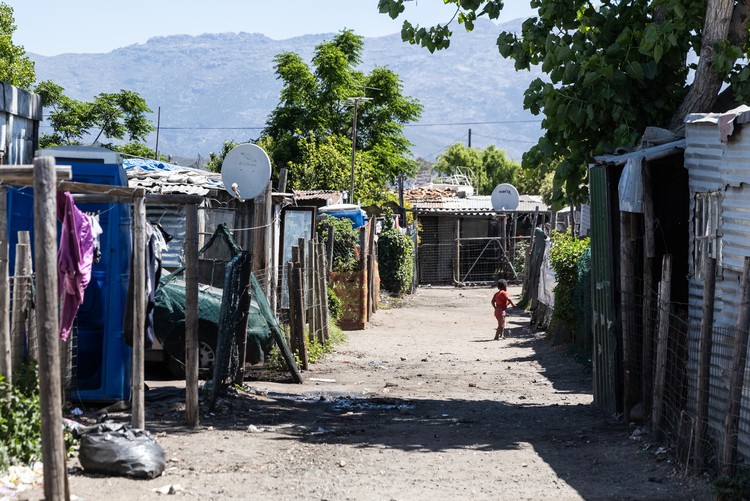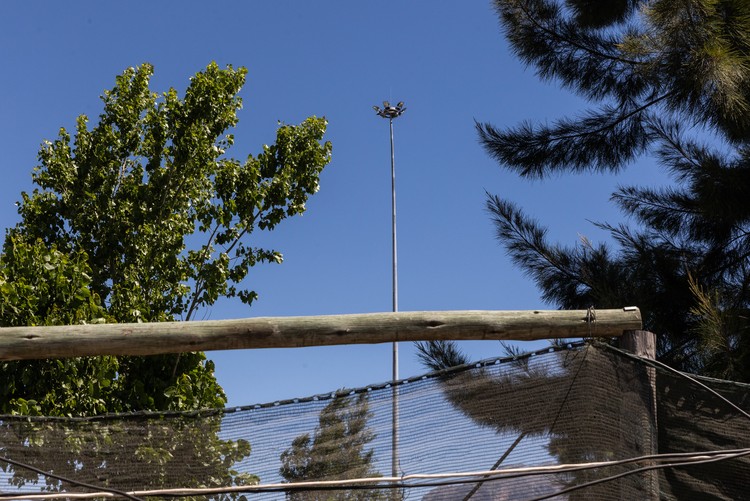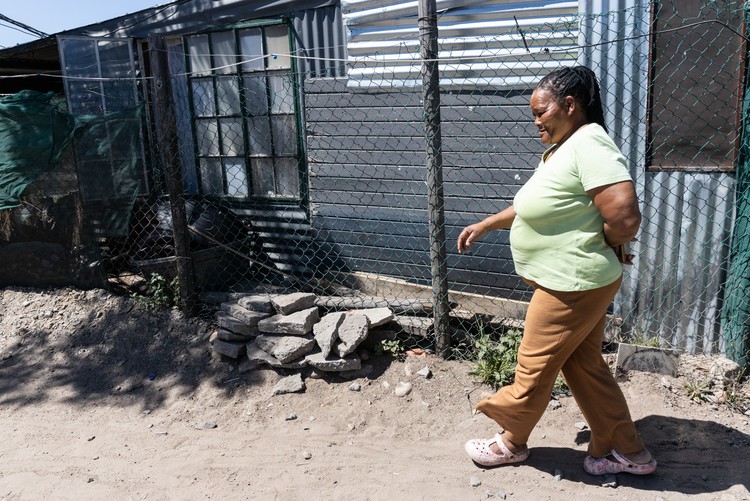Spoekiesdorp families haunted by past evictions and uncertain future
“Many of us are here because we were evicted from farms. We were dumped here”
Spoekiesdorp informal settlement in Rawsonville and is home to about 1,000 people. Some have been waiting over a decade to be relocated.
- Spoekiesdorp informal settlement is prone to flooding, lacks access to toilets and clean water, and there is no formal electricity.
- The Breede Valley Local Municipality has proposed relocation of the approximately 1,000 people to a town 20km away.
- But residents say it is too far and plagued by gang violence.
“Every time they tell us we need to be patient. But we have been patient,” says Spoekiesdorp resident Angeline Dynae. “I feel defeated because I don’t know what to believe anymore.”
Spoekiesdorp informal settlement in Rawsonville, located next to the Smalblaar River and near a sewage works, is home to approximately 1,000 people, mostly former farm workers. They lack access to toilets, are often without tap water and have no formal electricity.
According to Breede Valley Local Municipality spokesperson Hannelie Botha, Spoekiesdorp was initially earmarked for small-scale farmers within the Rawsonville area.
“People started to invade the land in or around 2010 and have been flooding the area ever since,” said Botha.
Angeline Dynae says in that three of the four years she has lived in Spoekiesdorp, the settlement flooded, most recently in September.
When GroundUp visited last week, we saw children playing in the river while a resident relieved herself in the water. There were cattle and dogs as well.
In the dusty settlement there are leaking pipes with stagnant, fetid water. A heavy stench hangs in the air.
Dynae says that in three of the four years she has lived here, Spoekiesdorp has flooded, most recently in September.
“People lost their children’s birth certificates, IDs, cupboards, food, and clothes. Many people still don’t have beds to sleep on. Our people are still struggling today to regain what they lost,” said Dynae.
Margaret Conradie has been staying in Spoekiesdorp since 2009 after she was evicted from a nearby farm.
Margaret Conradie has lived in Spoekiesdorp since 2009 after she was evicted from a nearby farm.
She says the family has to boil their water before they can drink it, but this isn’t always possible because it uses a lot of electricity. Then she and her two teenage daughters get stomach problems.
“Sometimes when I go to church, I take cans with me to fill up with water after the service,” says Conradie.
To get electricity, she bought a 150-metre extension cord and connected it to a formal house.
“A lot of the time I don’t have money to buy electricity. It’s not a nice life and it seems as if we’re still going to be here for a long while,” said Conradie.
She works twice a week packing and sorting oranges at a citrus farm and is paid R960 a month. Her daughters receive a child support grant.
“When there isn’t electricity, my children either need to work under candlelight or use my cellphone’s flashlight,” she says.
She says there aren’t enough toilets. On average, five families share a toilet.
“People keep saying we moved here by choice and knew the risks. But we didn’t. Many of us are here because we were evicted from farms. We didn’t choose to live here. We were dumped here and had no other choice but to squat here”.
Johanna Apolis lives in Spoekiesdorp with her husband and two small grandchildren. The family survives on social grants.
Johanna Apolis and her husband moved to Spoekiesdorp in 2013. They then moved to Wolseley but were evicted after unknowingly living on someone else’s property for nearly five years. They returned to Spoekiesdorp last year and now live with their three- and five-year-old grandchildren.
Apolis’s husband is a pensioner, she is unemployed, and their grandchildren both receive child support grants.
Apolis said they use a gas stove to prepare meals. When they run out of gas and cannot afford to buy more, they cook over a fire. But finding wood is not easy.
“The farmers at the nearby farms don’t allow us to fetch the discarded wood on their property so that we can take it home to make a fire. These farmers think nothing of us. We are like dogs in their eyes,” said Apolis.
According to the municipality, Eskom says parts of the settlement are below the flood line and cannot be supplied with electricity.
Spoekiesdorp has one mast light to light up the township.
Proposed relocation
Botha said the municipality has been involved in finding alternative land for the residents to move to since 2014. So far, they have identified Rolihlahla Informal Settlement in Avian Park, about 20km from Spoekiesdorp.
But the residents have objected because Avian Park has a reputation for crime.
“How can they move us there when the people living there moved out because it’s dangerous there? How can they take us, who are used to the farm, and move us to Worcester — a place we’re unfamiliar with?” asked resident Dinah van der Sterr.
She lives with her husband, four children and two grandchildren. Both Van der Sterr and her husband receive disability grants while her grandchildren receive child support grants. They have lived in the settlement since 2018.
“My husband is sick, what happens if he has an attack? What about the schools? My children will have to adapt to a new school. They [the municipality] didn’t think this through,” says Van der Sterr.
Dinah Van Der Sterr lives with her husband, four children and two grandchildren. She came to Spoekiesdorp in 2018.
The SA Human Rights Commission (SAHRC) is also involved in finding alternative locations for the families to move to. During a previous engagement with residents, the SAHRC said one of the two farmers they engaged with, had made farmland available on condition that it be used to build homes for working adults.
Another farmer offered a portion of land on condition that a police department, crèches, schools and a gym needed to be built.
“How many police departments, crèches and schools do we need? How can people gym, but they have nowhere to live? They’re only making up these conditions because they don’t want to offer us a place to live,” says Van der Sterr.
The Smalblaar River where children swim and some residents relieve themselves.
Support independent journalism
Donate using Payfast

Next: Teenager’s drowning highlights broken promises in Kliptown
Previous: “We are back”: Khulumani pensioners sleep outside Constitutional Court
© 2023 GroundUp. This article is licensed under a Creative Commons Attribution-NoDerivatives 4.0 International License.
You may republish this article, so long as you credit the authors and GroundUp, and do not change the text. Please include a link back to the original article.
We put an invisible pixel in the article so that we can count traffic to republishers. All analytics tools are solely on our servers. We do not give our logs to any third party. Logs are deleted after two weeks. We do not use any IP address identifying information except to count regional traffic. We are solely interested in counting hits, not tracking users. If you republish, please do not delete the invisible pixel.







